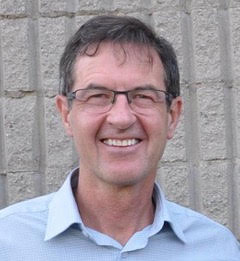
Richard Ascough is a Professor in the School of Religion at Queen’s University. His research and teaching focuses on the history of early Christianity and Greco-Roman religious culture with particular attention to various types of groups. He has published widely in the field with more than forty articles and essays and ten books and has been recognized for his teaching most recently as a 3M Fellow. He also teaches courses on “Religion and Film” and “Religion and Business Ethics,” although is currently serving a three-year sentence as an Associate Dean in the Faculty of Arts and Science.
Together with Sharday Mosurinjohn, Richard is co-teaching a new course on religion and art that integrates their respective expertise on ancient and contemporary material culture. With a grant from Queen’s Centre for Teaching and Learning, they are researching “threshold concepts” in the study of religion. In their other research collaborations, they are engaged in theory-building in the field of affect using ancient and contemporary artefacts as touchstones.
In this second of a two-part series, Richard Ascough adds his voice to Sharday Mosurinjohn’s reflections on a new blog post assignment used in a course on Spirituality, Secularity, and Nonreligion taught through the School of Religion at Queen’s University. In the earlier post, Sharday noted that she learned two key lessons: that students are concerned...
This work is licensed under a Creative Commons Attribution- NonCommercial- NoDerivs 3.0 Unported License.
The views expressed in podcasts, features and responses are the views of the individual contributors, and do not necessarily reflect the views of The Religious Studies Project or our sponsors. The Religious Studies Project is produced by the Religious Studies Project Association (SCIO), a Scottish Charitable Incorporated Organisation (charity number SC047750).